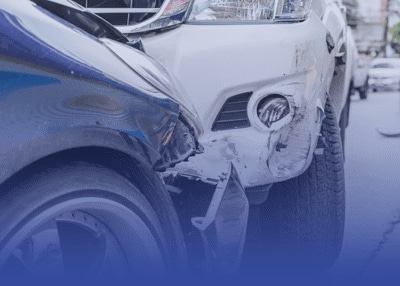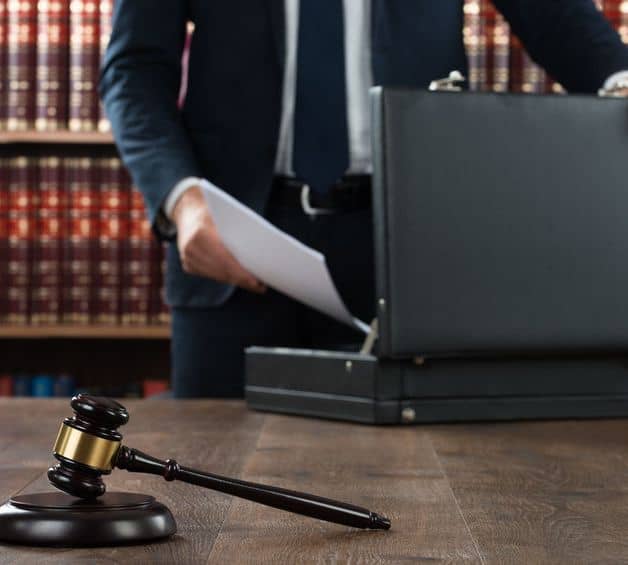12 September, 2022

A statute of limitations is a time limit set for a person to file a claim for a crime or accident. Once that time limit has passed, the victim may forfeit their legal right to file a claim against the at-fault party. If you are considering suing a person or entity for an accident or crime committed against you, it’s essential that you consult an experienced attorney who can make sure you file your claim within the statute of limitations.
The Barnes Firm is a team of highly skilled personal injury lawyers. We have extensive experience helping our clients whether or not it is possible to still sue someone after the statute of limitations has passed in New York & California.
The answer to this question is not a simple yes or no. In most cases, if a statute of limitations has passed for an accident or crime, you will have forfeited your legal right to sue the at-fault party. However, there are certain cases where a statute of limitations can be tolled. Tolling is when a statute of limitations is temporarily suspended or stopped for some time. Five situations in which a statute of limitations may be tolled include:
In these cases, the statute may be permanent or temporarily tolled, but the statute of limitations will begin again as soon as the toll is ended. Because cases involving tolling can be complicated, it is best to consult a trusted attorney who can tell you whether or not you are still within your rights to sue for the accident or crime.

The discovery rule is a way for the courts to provide people with particular circumstances equitable tolling. Those circumstances include the following:
If you’re unsure if the discovery rule may apply to your case, you should consult with an experienced personal injury lawyer who may be able to help you based on the details of your case.
Disclaimer: *Steve and Rich Barnes have obtained millions in recoveries for their clients and have supervised over $2.5 Billion Dollars in settlements.
When you’ve been harmed due to a crime or accident, you may be feeling unsure of what to do next. Seeking the help of a personal injury lawyer in New York or California is important to not only help you get justice but to ensure you file your claim within the statute of limitations set forth by the state governments.
The Barnes Firm is a team of personal injury lawyers with extensive knowledge of the state’s legal system and laws. Our skilled legal team is proud to provide our clients with the specialized service and dedicated representation they deserve. To set up a free case evaluation with one of our trusted attorneys, fill out our online contact form.
The Barnes Firm (800) 800-0000
Bronx Car Accident Lawyer
Brooklyn Car Accident Lawyer
Buffalo Car Accident Lawyer
Long Island Car Accident Lawyer
New York City Car Accident Lawyer
Queens Car Accident Lawyer
Rochester Car Accident Attorney
Anaheim Car Accident Lawyer
Los Angeles Car Accident Lawyer
Oakland Car Accident Lawyer
San Diego Car Accident Lawyer
San Jose Car Accident Lawyer
San Francisco Car Accident Lawyer
Written by The Barnes Firm, reviewed by Richard Barnes

Rich Barnes
President
Richard Barnes: “As President of The Barnes Firm, I have dedicated my career to achieving justice in hundreds of cases for the victims of injuries caused through the fault of others. Additionally, I have been honored to have been elected Best Lawyer and a Super Lawyer”
Years of Experience: 30+ years
LinkedIn Profile: Richard Barnes


This page has been written, edited, and reviewed by a team of legal writers following our comprehensive editorial guidelines. This page was approved by attorney president Rich Barnes who has more than 30+ years of legal experience as a practicing personal injury trial attorney.
The Barnes Firm is here to help you. Our personal injury firm helps individuals and their families who
have suffered an injury in an accident.

Whether your car crash was minor or serious, any injuries sustained in an accident can be painful and costly.

All motorcycle accidents are different, the compensation you receive will depend on the circumstances surrounding your accident.

A truck accident can be catastrophic, even in low-impact crashes, if you or your family are involved, you may be entitled to significant financial compensation.

There are dozens of accidents involving school buses each year, most commonly, involving children outside a school bus.
Explore Articles Related to Your Situation

What to Expect from a Free Consultation with The Barnes Firm When it comes to legal matters, i...
read more
In a lawsuit, the amount of money an accident victim receives can be classified as either compe...
read more
Whiplash is a type of neck injury caused when a person is whipped back and forth forcefully, ...
read more
After any car accident, you may be able to receive financial compensation for your medical bill...
read moreWe are always available to discuss your case. Give us a call at (800) 800-0000.
Fill out our form and we will contact you shortly to discuss your case
Our attorneys will come to your home, office or hospital at your convenience.
We are available anytime, including after hours and
weekends.
420 Lexington Avenue
Suite #2140
New York, NY 10170
Phone: (800) 800-0000
Fax: +1 (800) 853-5153
600 Old Country Road
Suite #425
Garden City, NY 11530
Phone: (800) 800-0000
Fax: +1 (800) 853-5153
500 Pearl Street
Suite #700
Buffalo, NY 14202
Phone: (800) 800-0000
Fax: +1 (800) 853-5153
451 Grider Street
Buffalo, NY 14215
Phone: (800) 800-0000
Fax: +1 (800) 853-5153
28 East Main Street
Suite #600
Rochester, NY 14614
Phone: (800) 800-0000
Fax: +1 (800) 853-5153
633 West 5th Street
Suite #1750
Los Angeles, CA 90071
Phone: (800) 800-0000
Fax: +1 (888) 800-7050
555 12th Street
Suite #1470
Oakland, CA 94607
Phone: (800) 800-0000
Fax: +1 (888) 800-7050
655 W. Broadway
Suite #940
San Diego, CA 92101
Phone: (800) 800-0000
Fax: +1 (888) 800-7050